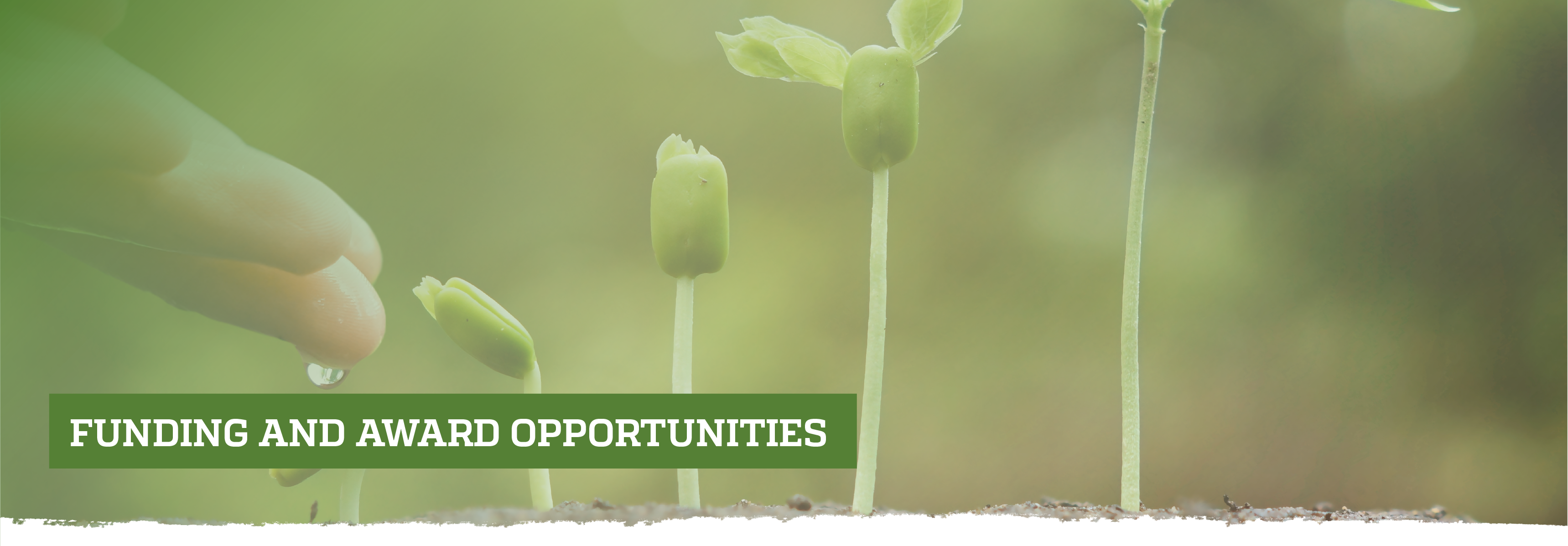This Call is For: UF/IFAS Faculty
Submission Deadline: February 3, 2025
SEEDIT Geographical Distribution by Project
UF/IFAS is committed to helping faculty develop tools and technologies that drive important innovations, move ideas to the marketplace, and fuel the economic engine of the State of Florida.
The UF/IFAS Dean for Research Office, with support from the UF/IFAS Dean for Extension Office, is announcing a joint call for two programs: (1) SEEDIT (Support for Emerging Enterprise Integration Teams) Program, and (2) LIFT-AI (Launching Innovative Faculty Teams in AI).
SEEDIT promotes and grows integrated research and extension team efforts towards emerging enterprises, and LIFT-AI supports team science to develop AI-driven solutions, including market-ready solutions. This joint call for proposals seeks to further the development of emerging agricultural enterprises, and boost the commercialization of AI-driven solutions.
Awards: $1,000,000 is available, approximately half set aside for projects involving AI. Project budgets should range from $25,000 - $75,000. Funding should be available starting March 2025 and must be spent within 18 months.
Proposed projects must identify one of two tracks:
- Track I: new & emerging teams investigating chokepoints and feasibility
- Track II: well-developed ideas, with teams ready to establish public-private partnerships
Eligibility: Each team must include at least one UF/IFAS faculty member as PI or Co-PI who holds a tenure-track faculty position with a tenure home in UF/IFAS. The PI or a Co-PI must also have an active and fully approved Capacity Project in the NIFA Reporting System (NRS, formerly REEport) prior to submission. For assistance with NRS, please contact Dana Holt (danasu@ufl.edu).
Scope and Criteria: Funds should be used to help build and support integrated teams working on development and advancement of new tools, technologies, and emerging enterprises in Florida and contributing to creating new opportunities for tech licensing, business startups, public-private partnerships, and/or new market opportunities. Approximately half of the available funding will be set aside to develop or accelerate AI-ready solutions to market.
The work funded under this program should lead to significant follow-on extramural funding, whether private or public. Track II proposals must also demonstrate significant support from industry partners and other stakeholders. This support is broadly defined as measurable monetary and in-kind contributions, technical support, and other assistance.
Proposals will be evaluated based on:
1) Scientific merit and rigor of the project;
2) Capacity, expertise, and experience of the interdisciplinary faculty team; Inclusion of county extension faculty is encouraged;
3) Ability of the team to effectively address market chokepoints and needs;
- Track I: Identification of researchable chokepoints related to technical feasibility, biophysical/environmental limitations, economic/social considerations, and/or regulatory/policy limitations;
- Track II: Development of partnerships that collaboratively address and implement solutions to known chokepoints;
4) Creation or potential for creation and transfer of marketable tools and technologies and/or business enterprises (e.g., commercialization plan);
5) Evidence of societal need (e.g., customer validation) for the outcome of a successful SEEDIT enterprise;
6) Actual or potential extramural private and/or public sector funding; and
7) Impact of the proposed project on the investigators’ Research and Extension program development, including intellectual property and publications.
How to Apply: Please submit the requested materials here: https://ufresearch.infoready4.com/#ifas by February 3, 2025. The information requested includes:
· Online cover sheet:
a. Proposal Track (I or II) and Title
b. General audience abstract (limited to 200 words)
c. Statement briefly describing the commercialization plan, enterprise development model, and/or impacts on end-users and society (limited to 200 words)
d. Integration Team information (names, titles, affiliations, email addresses, and NRS project numbers if applicable)
e. Budget (faculty and TEAMS staff salary not allowed, and IDC is not applicable to this internal program)
f. Institutional Review Board or Institutional Animal Care and Use Committee determination, if applicable
· Attached PDF narrative with the following information (maximum three pages excluding literature cited and evidence of industry support, one-inch margins on all sides, at least 11 point font including tables and figures):
a. Title
b. Introduction: A brief overview of the literature, justification (e.g., chokepoints), prior directly-relevant work by team members, and relevance of the project to the team’s Research and Extension programs and goals
c. Expected outcomes and impacts: A brief description of the potential outcomes and impacts to stakeholders and to the faculty members’ programs
d. Methodology: A description of the plan to integrate research and Extension toward commercialization and enterprise development, project objectives, hypotheses to be tested, and methods
e. Project timeline: A project timeline, including a slide deck and presentation to UF/IFAS faculty and stakeholders in August 2026.
NOTE: Funded teams should expect to participate in an abbreviated version of NSF’s I-Corps entrepreneurial training program and customer discovery exercise, likely in late Spring or Summer of 2025.
f. Extramural funding approach: A summary of specific private and/or public sponsor(s) and program(s) that will be targeted for funding using the outputs of this project, and the anticipated times of submission. In addition, Track II proposals must outline any current funding commitments (e.g., from funding agencies, foundations, or industry) related to the proposed work
g. Budget narrative, including partner/stakeholder contributions that are required for Track II
h. Literature cited (does not count toward the page limit)
i. Evidence of industry support (e.g., support letters; does not count toward the page limit)
Proposal Evaluation: The Deans for Research and Extension are responsible for final award decisions. Proposals not adhering to the specified format or not submitted by February 3, 2025, will not be considered.
If you have any questions, please do not hesitate to email Damian Adams (dcadams@ufl.edu) or Saqib Mukhtar (smukhtar@ufl.edu) or call 352-392-1784 (Dean for Research) or 352-392-1761 (Dean for Extension).
If you have IT issues with the website or do not receive an email confirmation upon submission, please contact Brian Gray (seven7@ufl.edu).

